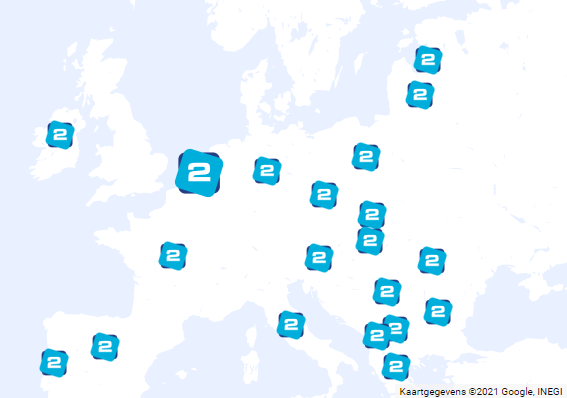1 in 7 workers (14,1 %) in Belgium has a other nationality.
This is an increase of 13.6 % from 5 years ago. Thus, 14.1 % of employment contracts today are contracts with a non-Belgian, 6.4 % of them are European and 7, 7 % are from outside Europe.
From which country Are these non-Belgian workers from?
At number one is the Netherlands. Morocco supplies the most workers from outside Europe.
| Top 5 Europe | Top 5 outside Europe |
| 1. Netherlands | 1. Morocco |
| 2. Romania | 2. Turkey |
| 3. Poland | 3. Congo |
| 4. France | 4. Russia |
| 5. Bulgaria | 5. India |
So we can say with certainty that Eastern European countries are still heavily represented in our Belgian workplace.
These EU10 represent 10 countries: Poland, Hungary, the Czech Republic, Slovakia, Slovenia and the three Baltic states of Estonia, Latvia and Lithuania, as well as Romania and Bulgaria. Romania in particular is increasingly claiming its place. About 100,000 Romanians live in Belgium today, although they often travel back and forth. They are migrant workers par excellence: they come to work. Then again, the Baltic states are really experiencing a real exodus mainly by young people between the ages of 25 and 35. From Lithuania to Western Europe and from Estonia to Finland despite the better prospects in the region.
Indeed, these 10 countries have in recent years had a economic growth spurt through. Between 2015 and 2018, for example, the region grew at an average annual rate of 4 percent. In 2018, Poland's economy grew the strongest, at a whopping 5.1 percent. Growth forecasts also look positive for the coming years.
Moreover, as a result of the shrinking labor force, Eastern Europe is now itself facing an increasing labor shortage. This is accompanied by a rapid rise in wages, The War For Talent is also raging in Eastern Europe. So Eastern Europe is certainly doing well. As employment and labor wages grow, the motivation for Eastern Europeans to leave for Western Europe is decreasing, and countries that are far away are suffering the most.
Fortunately, there are a number of factors that may ease the pressure on Belgian companies to find foreign workers. Brexit forecasts say many Eastern Europeans from the United Kingdom will seek work in the other Western European countries. Also, investments in digitalization and robotization will have an effect on the long-term labor shortage. Either way, Eastern Europe remains an interesting job-filling market in Western -Europe, but vigilance is required long-term.

Link2Europe has anticipated these changes in Eastern European countries. In recent years we have invested heavily in partnerships with Eastern and Southern European recruitment partners, partners outside European borders and our own marketing strategy in 20 European countries. This ensures that we are ahead of this evolution of the candidate market and our clients can continue to provide their missing talent.
